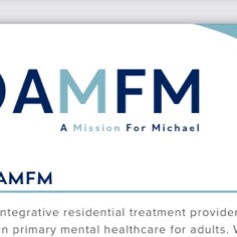How Kaiser Permanente Mental Health Services Work
Kaiser Permanente mental health services are rooted in a medical-necessity model. If a licensed clinician determines therapy is clinically appropriate, Kaiser must cover it just as it covers a blood test or an X-ray. That said, every Kaiser region writes its own Evidence of Coverage (EOC), so visit limits and co-pays vary. In 2025, the most common plans still feature:
- $0–$30 copay for individual therapy sessions
- Unlimited medically necessary visits (no preset cap)
- Same-day phone intake with a triage clinician
- A choice between in-house departments or contracted community providers
Kaisers Mental-Health Provider Types
If you’re a Kaiser Permanente member, you’ll notice there are different kinds of mental health professionals available to you. Each plays a slightly different role, but all are accessible through your Kaiser benefits.
A Kaiser therapist—which may include licensed marriage and family therapists (LMFTs), licensed clinical social workers (LCSWs), or licensed professional counselors (LPCs)—primarily provides talk therapy. They’re often the best choice if you’re seeking support for anxiety, depression, stress, or major life transitions.
A Kaiser psychologist (PhD or PsyD) offers therapy too, but they also specialize in psychological testing and more complex psychotherapy approaches. If you need assessments for learning difficulties, ADHD, or advanced treatment modalities, a psychologist may be the right fit.
A Kaiser psychiatrist (MD or DO) focuses on the medical side of mental health. Psychiatrists can diagnose conditions, prescribe medication, and manage more complex cases where multiple health issues overlap.
The good news: you don’t have to guess which type to see. You can book directly with any of these providers through your Kaiser member portal or by calling the Appointment & Advice line.
Real-Life Use Case: How Maria Found a Therapist Covered by Kaiser
Maria, a 34-year-old new mom in Oregon, felt lingering sadness and brain fog months after giving birth. Here’s how she found a therapist covered by Kaiser:
- Day 1 — Intake Call
Maria clicks “Mental Health” in her Kaiser app and schedules a same-day phone screening.
- Day 2 — Care Options
The triage clinician offers two choices: a video appointment with an internal Kaiser Permanente therapist in 10 days or an external provider three miles away in four days.
- Day 3 — Directory Deep Dive
She uses the “find a therapist” filter (“Spanish-speaking,” “postpartum”) and chooses Dr. López—one of many therapists that take Kaiser in her county.
- Week 2 — First Session
Her first three visits cost $0 because preventative maternal-mental-health therapy is fully covered on her family HMO plan.
- Week 3 — Psychiatry Consult
When Dr. López recommends an SSRI, Maria schedules a 30-minute virtual check-in with a Kaiser psychiatrist the following afternoon.
Maria’s story shows how quickly you can move from symptoms to support when you understand the process.
Step-by-Step: How To Get Therapy Through Kaiser Permanente
Getting started with therapy at Kaiser Permanente is simpler than many people expect. Here’s how the process works from start to finish—and a few tips to make it smoother.
Step 1: Start the request (no referral needed).
You can begin online by signing in at kp.org and navigating to Appointments → Mental Health (or use the KP app). Prefer the phone? Call Member Services at 800-464-4000 (TTY 711, available 24/7) and say, “I’d like to schedule therapy.” You’ll be transferred to your region’s Behavioral Health Access Center. Have your medical record number ready. If you live outside California, the agent will give you your local number (also listed on your ID card).
Step 2: Complete a 15–20 minute intake call.
A licensed screener will ask about your symptoms, safety concerns, schedule, language needs, and therapist preferences. Be open and honest—your answers help match you to the right provider and set the clinical priority. If you’re experiencing urgent concerns, like thoughts of self-harm, mention them right away so they can fast-track care, often within 24 hours.
Step 3: Choose between in-house and community care.
Kaiser clinics offer integrated records and coordinated medication management, though wait times may be two to six weeks. If you need faster access—usually within seven days—or a specialty not offered in-house, you may be referred to an external network provider, either in private practice or via telehealth. If the first option offered doesn’t work, ask: “Can you check community-network availability within X miles or through video visits?”
Step 4: Check your cost share.
Review your 2025 Evidence of Coverage (EOC) under “Outpatient Mental Health,” or use Kaiser’s online cost estimator. Most HMO and POS plans charge between $0 and $30 per visit once your deductible is met. High-deductible (HDHP) plans usually pay the contracted rate—around $120 per session—until the deductible is satisfied, then revert to the usual copay or coinsurance. Virtual visits are typically billed at the same rate as in-person sessions.
Step 5: Book and confirm.
You can choose a video, phone, or office appointment. A confirmation will appear under Messages → Appointments in your Kaiser portal, listing your therapist’s name, license, date, and either a connection link or clinic address. Be sure to add it to your calendar and arrive or log in about 10 minutes early. If you need to reschedule, you can do so directly from the confirmation message or by calling the Behavioral Health scheduling line provided in your After-Visit Summary.
Step 6: Use digital supports while you wait.
Therapy appointments may take a couple of weeks to start, but Kaiser offers free digital tools you can use immediately. Members get same-day access to Calm, Headspace Care (text-based coaching plus meditations), and myStrength Complete CBT modules at kp.org/selfcareapps. Log in with your kp.org credentials, and you’ll be enrolled in under two minutes. These tools can help bridge the gap until therapy begins.
Step 7: Follow up and re-book.
After your first session, decide whether you’d like to continue with that provider or request a change. To keep momentum, re-book directly in the KP app or by calling the number from Step 1. Scheduling weekly or biweekly sessions not only improves outcomes but also helps secure a regular time slot in busy clinics.
Following these seven steps makes it much easier to start therapy at Kaiser Permanente. Many members are able to get connected with a provider within 2 to 14 days, depending on their region and urgency.
In-Network vs. Out-of-Network Care
Why stay in-network
- One chart, one bill — every clinician can see your KP record and medications.
- Predictable copay or coinsurance, usually $0–$30 once the deductible is met.
- Built-in coordination with your PCP, pharmacy, and any lab or imaging.
When to seek out of network
- You can’t get an in-network appointment within 15 business days (California standard) or the time-frame promised in other states.
- You already have a long-time therapist who isn’t on Kaiser’s panel.
- You need a niche specialty (e.g., trauma-focused EMDR in Spanish) that Kaiser can’t deliver quickly.
How to use out-of-network benefits without surprise bills
- Call Member Services first. Ask: “Can you pre-authorize an external referral because the soonest in-network visit offered was later than the timely-access standard?”
- Collect a “superbill.” Pay the therapist’s fee, then upload the superbill to kp.org → Coverage & Costs → Submit a Claim for partial reimbursement.
- Track deadlines. KP must approve or deny the claim within 30 days and pay approved claims within 45 days.
Going out of network means paying the therapist’s full fee upfront, then submitting a superbill for partial reimbursement. If you turn to therapists that take Kaiser but sit outside the official panels, call Member Services first; some regions pre-authorize outside care when internal waits exceed 15 business days.
Digital & Telehealth Options
Kaiser Permanente offers a wide range of digital and telehealth tools so you can get support anytime—whether you prefer live sessions or self-guided care.
You can schedule a video or phone therapy visit with a Kaiser therapist or psychiatrist for a standard 45–60 minute session. These are booked through the Mental Health Access Center, and when it’s time for your appointment, you simply log in at kp.org → Appointments → Join.
For on-demand support, Headspace Care provides 24/7 live text coaching with a behavioral health coach, plus access to guided meditations and sleepcasts. To get started, visit kp.org/selfcareapps, select Headspace, and sign in with your Kaiser credentials.
The Calm app is also available at no cost through the same self-care portal. It includes sleep stories, breathing exercises, and relaxation tracks to help manage stress and improve rest.
If you want something structured, myStrength Complete offers digital CBT (cognitive behavioral therapy) programs tailored to depression, anxiety, and substance use. You’ll usually receive an enrollment link in your Mental Health After-Visit Summary, but you can also request one during your intake call.
In some regions, Kaiser members even have access to same-day e-psychiatry—a video consult with a psychiatrist for urgent medication assessment. To see if this is available where you live, ask during your intake call: “Is same-day psychiatry available for my region and plan?”
Tip: These digital tools are free add-ons for members but aren’t considered guaranteed plan benefits. Because they can change or be discontinued, it’s smart to download any worksheets or progress logs you’d like to keep.
Cost & Coverage
How much you’ll pay for Kaiser mental health visits depends on your plan type and whether you stay in-network. Here’s a breakdown of what members often see:
If you have an HMO Bronze or Silver plan, therapy usually costs between $0 and $40 per visit after you meet your deductible. Out-of-network sessions are much more expensive—typically 50% of Kaiser’s allowed amount after the deductible.
With an HMO Gold or Platinum plan, you’ll often pay just $0 to $20 per visit, with no cap on the number of visits. Out-of-network care is still covered at about 50% after deductible, but you’ll save the most by staying in-network.
Members with a Kaiser PPO usually see 10% to 30% coinsurance for in-network visits. Out-of-network care costs more—around 50% coinsurance—and you may also face “balance billing,” meaning the provider can charge you the difference between their rate and Kaiser’s allowance.
If you’re covered by a Federal Employee Health Benefits (FEHB) plan, the first three visits are often free ($0 copay), followed by the standard copay for ongoing care. Out-of-network visits generally carry about 30% coinsurance.
For Medicare Advantage members, mental health visits usually run $25 to $30 each when you stay in-network. Out-of-network services typically aren’t covered unless it’s an emergency or urgent situation.
Important: These numbers are mid-range examples, not guarantees. Always double-check your Evidence of Coverage (EOC) or use Kaiser’s online cost estimator at kp.org before booking, so you know exactly what to expect.
Picking the Right Kaiser Therapist
- Filter for expertise. On the intake call, request a therapist specalizing in the reason you are seaking care. For example: depression, anxiety, ADHD, couples, etc.
- Prioritize cultural fit. Mention language, cultural background, or LGBTQ+ competency needs.
- Ask about modality. If you want EMDR or DBT, state that up front; not every clinician offers specialty modalities.
- Check logistics. Confirm video capability, office location, and evening hours before hanging up.
What to Do if Wait Times Drag
It’s frustrating to finally ask for help, only to find yourself stuck on a long waitlist. If your Kaiser therapy appointments are delayed beyond what’s considered timely, you do have options.
File a Timely-Access Grievance.
Log into your Kaiser account at kp.org → Message Center → Submit Complaint, or call Member Services and request a Grievance Form 600. By law, Kaiser must respond within 30 days. In California, for example, routine mental health visits are supposed to be scheduled within 15 business days. If those standards aren’t met, corrective action is required.
Request an external referral.
If in-network providers can’t see you soon enough, you have the right to ask for outside care. Use wording like: “Under Health & Safety Code §1374.721, please authorize out-of-network care because in-network options exceed timely-access limits.” Kaiser is legally required to arrange and cover medically necessary mental health or substance use services when timely access isn’t available.
Escalate to the Patient Advocate Office.
You can also take your case higher. Call Member Services and ask for your region’s Patient Experience number, then send a concise email documenting your timeline of missed or delayed appointments. Each Kaiser region files quarterly access reports with state regulators, and well-documented cases are often prioritized.
Keep detailed records.
Write down call dates, the names of staff you spoke with, and any appointment offers (or denials). These notes become powerful evidence if you need to appeal to the Department of Managed Health Care (DMHC) in California or the equivalent regulator in your state.
Tip: Persistence plus documentation is your best leverage. By keeping clear records and citing the laws that protect timely access, you increase your chances of being connected to care sooner—whether that’s with a Kaiser provider or an approved out-of-network clinician.
FAQs
Does Kaiser cover therapy? Yes — when a clinician says it’s medically necessary, you pay only your plan’s copay/coinsurance.
Are couples or family sessions covered? Covered if the focus is a member’s diagnosis; “relationship-enrichment” counseling may be denied.
How long to get the first visit? Intake in 2–10 days; therapy start depends on regional capacity (ask during intake).
Can I switch therapists? Definitely. Message your care team or call the Access Center and say, “I’d like a different provider.”
Psychologist vs. psychiatrist? Psychologists do testing and talk therapy; psychiatrists are MDs/DOs who manage medications.
How does Kaiser vet therapists? Primary-source credentialing, peer-review committee approval, site audits, and re-credentialing every 3 years.













